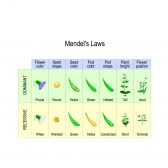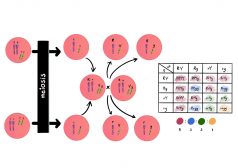Positional cloning is a gene identification method to determine the position of a gene in the genome and not necessarily its function. The chromosomal location is initially determined from linkage analysis and referred to as the candidate region. To further narrow down the candidate region, positional cloning is carried out. Because this is the reverse of how things have been traditionally done, it has also been called reverse genetics.
See also
© Biology Online. Content provided and moderated by Biology Online Editors







